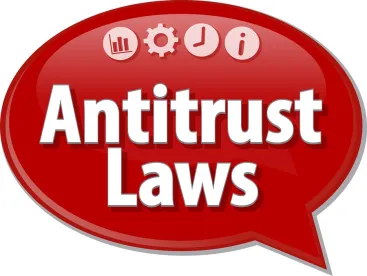The European Commission has reiterated its position that if a business allows for the non-exclusive licensing of its products in the EEA, such licensor can no longer control where, to whom, and in what manner (online/off-line) the products can be sold within the EEA.
On 30 January 2020, the Commission fined NBCUniversal Media, LLC, and other Comcast Group companies (collectively, NBCUniversal) EUR 14.327 million for restricting licensees from selling licensed products across customer groups and across countries within the European Economic Area (EEA). This is the third time in one year that the Commission has fined a brand owner for such restrictions, following Nike and Sanrio.
Although agreements restricting out-of-territory sales (i.e., market partitioning by territory) have long been prohibited under Article 101(1) of the Treaty on the Functioning of the European Union (TFEU), the Commission’s increased enforcement activity on vertical restraints is remarkable.
What Happened
Under non-exclusive licensing agreements, NBCUniversal directly and indirectly restricted its licensees’ out-of-territory sales, sales beyond allocated customer groups and online sales.
NBCUniversal used the following direct measures, among others:
-
Clauses explicitly prohibiting out-of-territory sales, obligations to notify out-of-territory sales to NBCUniversal, limitations on language that could be used on merchandise products, and obligations to pay NBCUniversal revenues generated from out-of-territory sales
-
Clauses explicitly prohibiting sales to certain customer groups and obligations to pay NBCUniversal revenues generated from sales to non-allocated customer groups
-
Clauses prohibiting all online sales, clauses prohibiting out-of-territory online sales and clauses only allowing online sales on the websites of specific retailers
-
Obligations to pass on the aforementioned restrictions to the licensees’ customers.
NBCUniversal also used indirect measures, including audits and termination or non-renewal of contracts if licensees did not respect the sales restrictions.
The licensed merchandise subject to these restrictions included objects such as mugs, bags, clothes, shoes, stationery and toys that featured the Minions, Jurassic World, and other images and characters from NBCUniversal’s films. The restrictions were in place for more than six years, from 1 January 2013 until 25 September 2019.
In non-exclusive sales networks, such as the one used by NBCUniversal, direct and indirect restrictions of sales beyond allocated territories or customer groups, whether online or offline, constitute restrictions by object within the meaning of Article 101(1) TFEU. Such restrictions cannot benefit from the Vertical Block Exemption Regulation (VBER) or the Technology Transfer Block Exemption Regulation (TTBER). They are also unlikely to satisfy the conditions for general exemption set out in Article 101(3) TFEU.
In exclusive sales networks, there are specific circumstances where restrictions of active sales by buyers/licensees to exclusive territories or customer groups reserved for suppliers/licensors can benefit from the VBER or the TTBER. Online sales not specifically targeted at certain territories or customer groups are considered passive sales, and therefore in most circumstances it is not possible to restrict online sales. There are limited circumstances where restrictions of passive sales by licensees to exclusive territories or customer groups reserved for licensors can benefit from the TTBER, however.
What This Means
-
Brand owners with non-exclusive sales networks should allow consumers to purchase in all EEA countries. Brand owners should not try to prevent online sales through methods such as termination of transactions when credit cards reveal addresses in different countries or automatic routing to other distributors’ websites.
-
Brand owners with exclusive sales networks should seek legal advice before implementing restrictions on active or passive sales.
-
In light of the Commission’s increased focus on vertical restraints, companies should review and (where necessary) restructure their licensing and distribution arrangements. They should do so before the new VBER is adopted following the evaluation of the current VBER, which expires on 31 May 2022.



 />i
/>i

